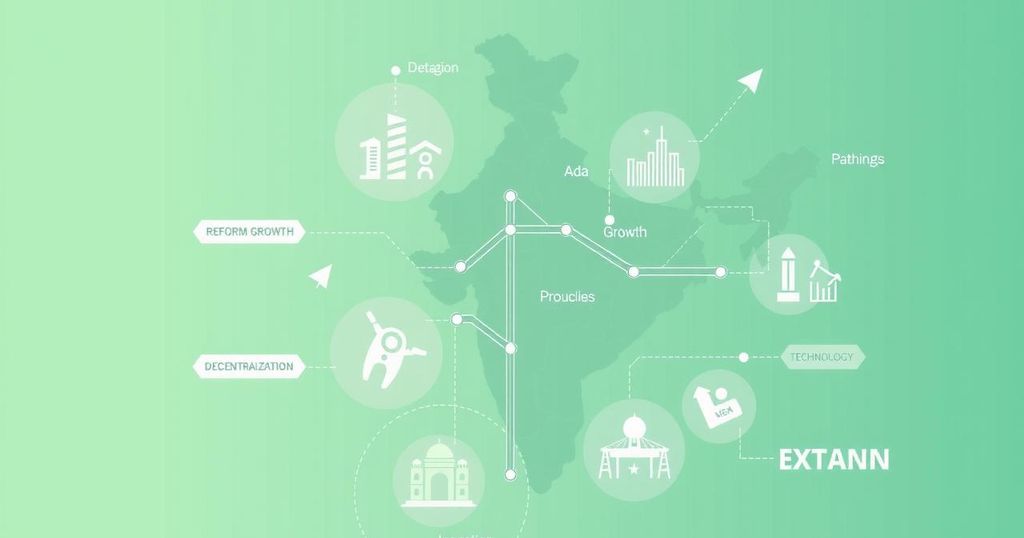- America’s current policies create short-term challenges for India.
- Opportunity exists for India to strengthen itself economically.
- India’s reforms should include deregulation and decentralized power.
- Immigration has been vital to America’s economic resilience.
- Indian immigrants play a crucial role in US innovation and entrepreneurship.
America’s Policy Changes and India’s Response
The current political climate in America seems to be a regression from the principles that once defined its greatness. With new policies targeting key institutions such as universities, businesses, and immigration, India’s challenge is to transform potential threats into opportunities. The short-term ramifications could be painful; India might see diminishing remittances, decreased student enrollment, and disruptions in foreign investment. However, this complicated situation could also present a chance for India if it can fortify its economic structure through a well-defined 180-day plan focusing on deregulation, decentralization, and enhancing human capital.
Historical Context of American Power and Innovation
Reflecting back, many view Pax Americana’s birth in the wake of World War II, yet I argue it more accurately began in January 1992. At that time, President George H.W. Bush heralded the United States as the ‘preeminent power’ following the collapse of the Soviet Union. Despite the tumultuous years that followed—9/11, economic crises, and global challenges—America still led globally in digital innovation and pharmaceutical industries due to its ability to attract the brightest minds from around the world. This leadership is currently under threat as a backlash against universities shrouds progress and innovation in shadows of doubt.
The Role of Immigration and India’s Path to Growth
The demographic advantage of immigration has allowed America significant economic resilience, contrasting sharply with challenges faced by countries like Japan and China. Foreign-born individuals constitute roughly 14 percent of the US population, and they are pivotal in driving entrepreneurship, scientific research, and technology advancements. Indian immigrants, in particular, have made notable contributions that bolster various sectors. However, as we observe changes in policy, there’s a pressing need for India to seize this moment by reforming labor compliance laws, redistributing power to regional governments, and promoting innovation in education to strengthen its global standing.
Looking ahead, India stands at a crossroads with the opportunity to turn the current turmoil in America’s policies into a strategic advantage. By reforming key areas and embracing innovation, it can position itself as a resilient player in the global economy. Although challenges loom, the historical partnership with America remains a pillar of India’s future prosperity.






